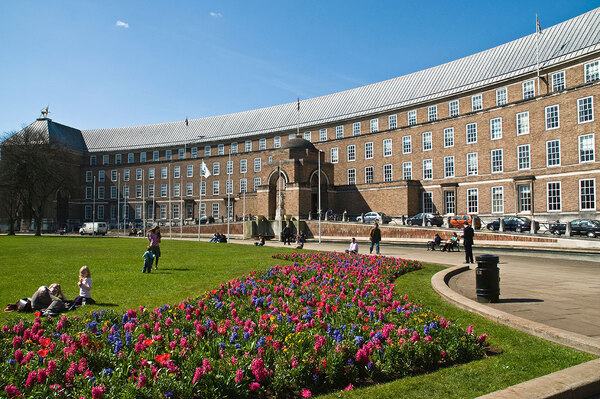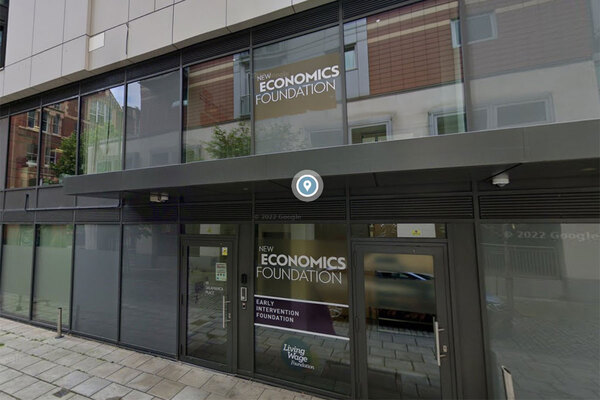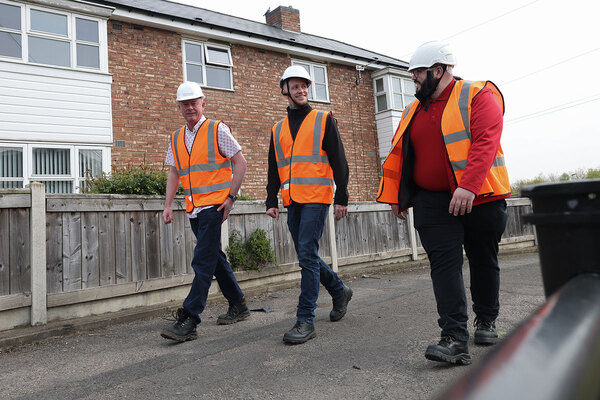You are viewing 1 of your 1 free articles
Labour will inherit a temporary accommodation crisis – could social impact investing help?
We have an opportunity to use capital from institutional investors to refurbish homes for charities and housing associations, writes Stephen Timms
Earlier this year, shadow chancellor Rachel Reeves was met with enthusiastic support from a crowd of UK business leaders as she set out Labour’s plan for ‘Financing Growth’.
As her plan notes, London is a top international financial centre with some of the deepest capital markets in the world. Building on our strengths to restore growth to the UK economy makes a lot of sense.
But to achieve Labour’s broader mission of opportunity for all, it’s crucial that this economic growth is spread fairly across the country.
Labour understands this. That’s why a key pillar of the party’s plan is to deliver inclusive growth, to address regional inequalities and help all of Britain thrive.
I was pleased to see in the recently published Labour Financial Services Review that the party will “evaluate innovative place-based impact investing models to crowd in more private finance to fund development of cities and regions.”
But should Labour fulfil expectations at the next election, it will inherit long-standing social inequality and an economic mess. It will therefore need to go further and faster to get finance into improving broken public services.
There is an important opportunity in “social impact investment”, an existing solution that channels private investment from pension schemes and others into delivering public benefits, from building homes for people facing homelessness to funding preventative care to cut NHS waiting lists. It enjoys bipartisan support – it was developed while Gordon Brown was prime minister. Over the past decade, this market has experienced substantial growth and now amounts to £10bn.
There are strongly positive social benefits. Recent research published by Better Society Capital highlights the impact in addressing homelessness, both in terms of saving taxpayer funds and improving people’s lives.
This research, based on analysis by Alma Economics, found that funds managed by Resonance, a social impact property fund manager, kept 3,300 people facing homelessness out of temporary accommodation over 10 years.
The model operates by attracting capital from institutional investors including pension funds to acquire properties, refurbish them to a high standard, and lease them to homelessness charities and housing associations. Tenants are provided with stable, affordable accommodation in safe areas, which enables them to receive wraparound support with their health, well-being and seeking employment opportunities.
The research comes as many local authorities grapple with mounting financial pressures, including skyrocketing temporary accommodation costs, which have increased 62% in five years. These funds can help local authorities tackle this challenge. 75% of households in temporary accommodation report sub-par conditions.
By contrast, social property funds can provide high-quality housing and comprehensive support, from mental health to employment. The research values the well-being boost to tenants, compared to those living in temporary accommodation, at £17,500 per person.
The same research showed that Resonance saved local authorities £140m between 2013 and 2023. Around £104m of this was because the 3,300 people supported by Resonance would otherwise have ended up in costlier temporary accommodation. The high-quality support offered by social property funds also reduced criminal justice and health service costs, accounting for the other £36m.
“Social property funds can provide high-quality housing and comprehensive support, from mental health to employment”
Matt, who was sleeping rough in Heathrow Airport for several months after losing his job during the pandemic but has managed to maintain a safe, affordable home thanks to a Resonance fund, says: “Because I’m now settled, it’s enabled me to move on with my life. I’ve managed to secure a job in central London which I’m really happy about.”
Government has supported the success of these initiatives, without needing a penny of additional spending. For example, reallocation of existing housing grants into these funds by the Department for Levelling Up, Housing and Communities in 2021 and 2022 helped leverage significant funding from private investors. We need existing resources to be ‘spent smarter’.
Better Society Capital projects that a £100m government grant could, over the next decade, attract in an additional £650m from investors. This could provide housing for 23,750 people and generate £1.1bn in public spending savings.
There could be important opportunities for an incoming Labour government here, in reallocating existing expenditure to scale up initiatives like this. Doing so can increase the impact of taxpayer funds, making them go further in addressing crucial challenges like the ever-worsening housing crisis that I hear about every week in my constituency surgery.
Stephen Timms, MP, East Ham
Sign up for our homelessness bulletin
Already have an account? Click here to manage your newsletters













